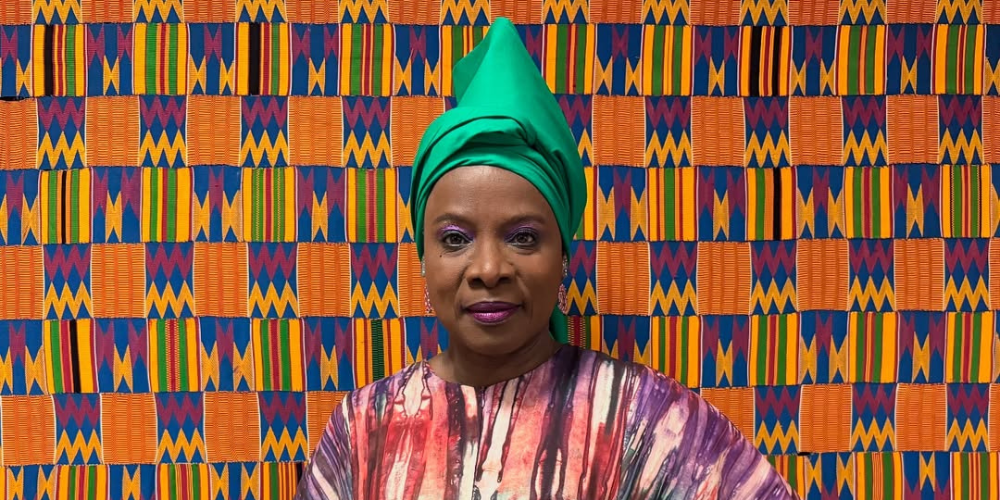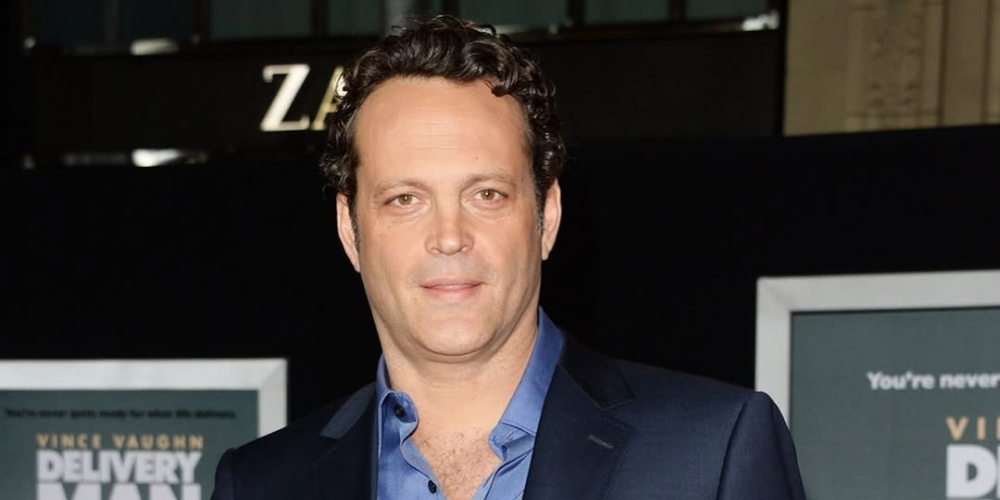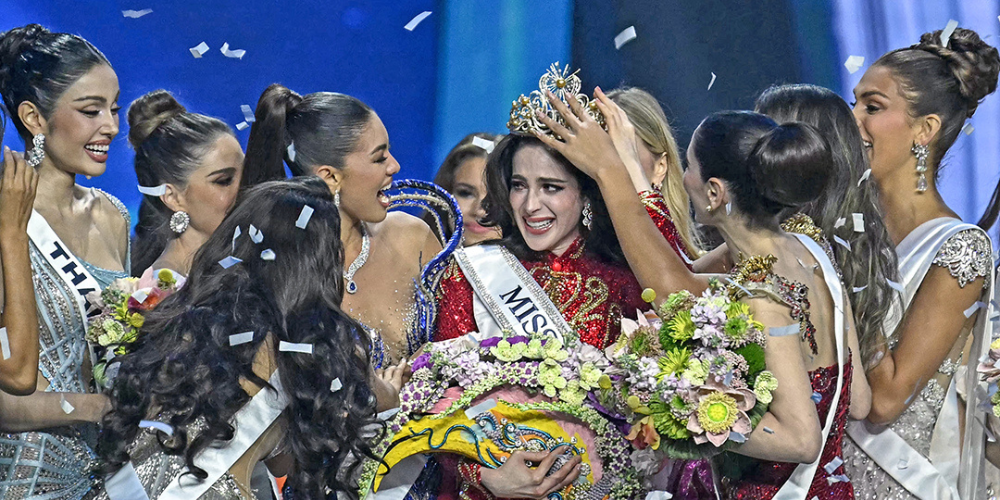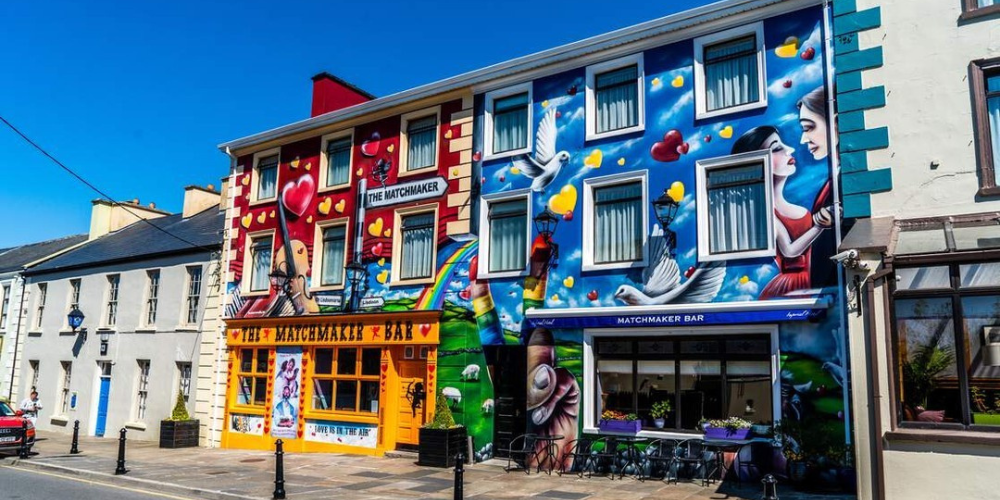Angélique Kidjo doesn’t just cross thresholds—she burns them down and builds new doors. With her name etched into Hollywood’s Walk of Fame, the five-time Grammy winner becomes the first Black African performer to be honored in its 60+ year history. But if you think this recognition is just a reward for longevity, you haven’t been listening closely.
Kidjo’s career has always been one of bold rearrangement of sounds, borders, assumptions, and expectations. This star is simply where the spotlight happens to land next.
The 2026 Walk of Fame class is a cultural patchwork: Miley Cyrus, who shapeshifts with every era; Timothée Chalamet, whose name alone causes ticket surges; Demi Moore, a mainstay of '90s Hollywood reinvention; and Shaquille O’Neal, the 7-foot brand unto himself. And then there’s Kidjo, who never played by Hollywood rules to begin with. Her lane has always been carved from somewhere else entirely: shaped by Yoruba chants, Parisian nightclubs, pan-African rhythms, and global citizenship.
There’s no formula for that.
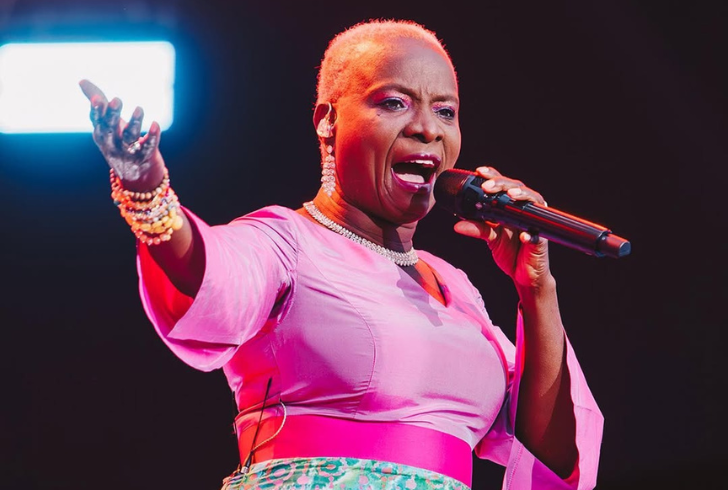
Instagram | @thetownfestival | Angélique Kidjo found her voice early in Benin and carried it worldwide through powerful music.
A Career Forged Under Pressure
Benin, 1960. Independence is fresh, optimism is high, and Kidjo is already absorbing her country’s layered identity. She’s performing on local stages before most kids learn to ride a bike. But by the time she’s a teenager, state censorship and authoritarian shifts turn the creative landscape into a minefield. Her voice was no longer just artistic—it was political.
So she left. Not with the fanfare of a farewell tour, but quietly, deliberately, and at personal risk. Landing in Paris wasn’t glamorous. She cleaned houses. She answered phones. She hustled her way into the CIM jazz school and stitched together an artistic identity from whatever scraps the industry would give her. That persistence—that insistence on being heard—is what kept her rooted while everything around her shifted.
Blending Genres in Music
By the time she released Logozo in 1991, Kidjo had already outgrown the “world music” category critics kept stuffing her into. Afrobeat, funk, Caribbean zouk, traditional Beninese melodies—none of them came with gatekeepers she respected. So she mixed and matched until something authentic stuck. It still does.
What makes her music unmistakable isn’t just the fusion. It’s the refusal to dilute. She sings in Fon and Yoruba when it suits her, and peppers her arrangements with brass or bata drums depending on the mood. Her collaborators—Burna Boy, Sting, Peter Gabriel, Philip Glass—don’t steer the ship. They board it.
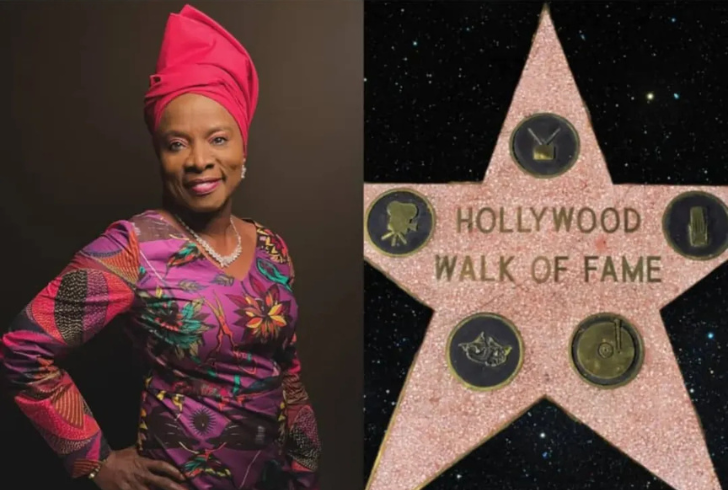
Instagram | @gabbana_tv | Kidjo’s star shines as a global symbol of talent culture and powerful representation.
Her Influence Beyond Music
Kidjo could have stopped at musical acclaim. She didn’t. In 2006, she founded the Batonga Foundation, aiming to dismantle systemic barriers keeping girls in sub-Saharan Africa out of classrooms. She’s on the ground, not just the brochures. And as a UNICEF and Oxfam ambassador, she’s been in war zones and refugee camps—not as a celebrity guest, but as someone fluent in the stakes.
This is what makes the star on Hollywood Boulevard feel a bit strange. It’s tidy, polished, and permanent. But nothing about Kidjo’s life has ever stood still long enough to be memorialized in marble.
Kidjo didn’t need a plaque to validate her impact. But the industry did need to catch up with her. And maybe that’s what this moment is really about. A reorientation. A recalibration. Proof that the pulse of global culture doesn’t begin and end in Los Angeles—it travels, it adapts, it listens.
Her name on the Walk of Fame doesn’t tie her legacy to one sidewalk in California. If anything, it leaves a breadcrumb for whoever’s next.


